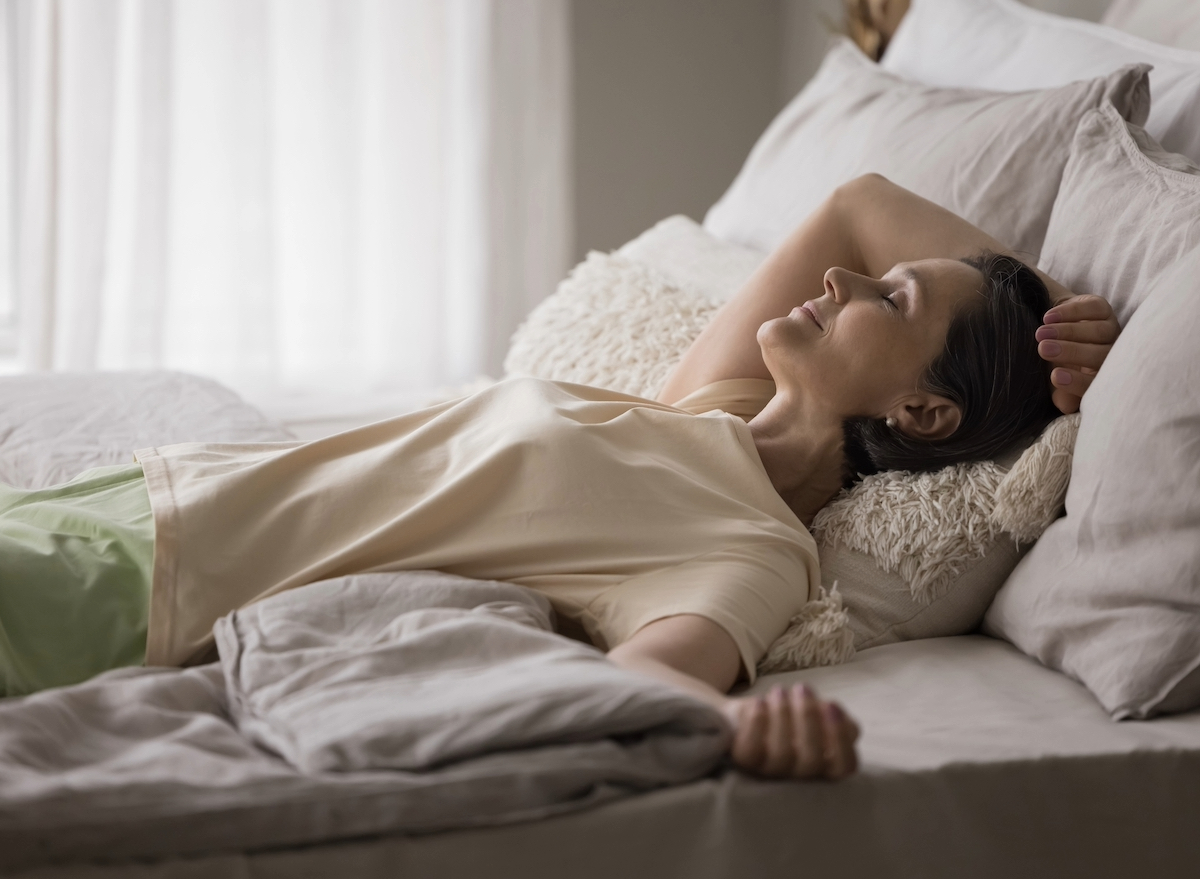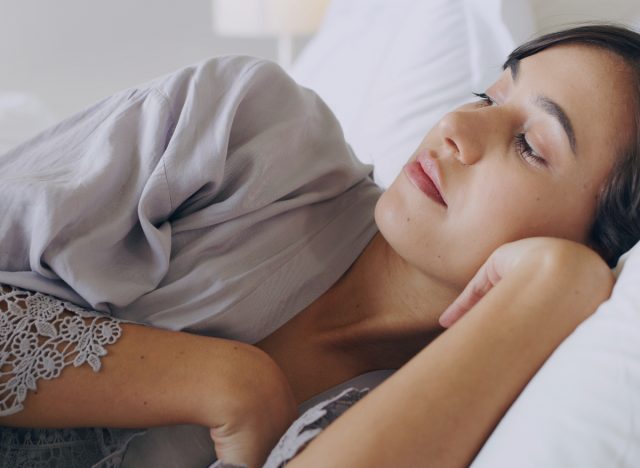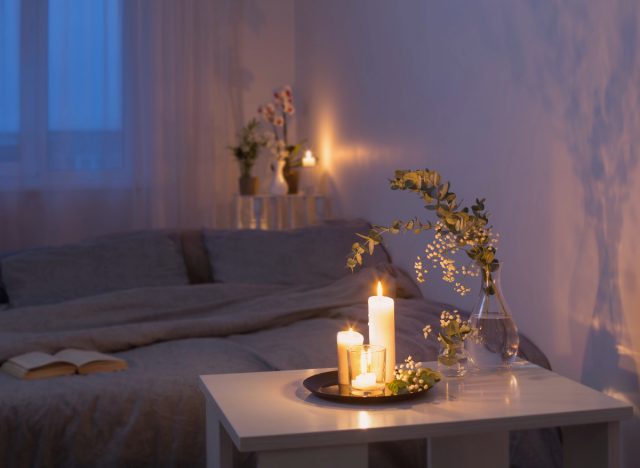People Are Using This Meditation Trick for Insomnia—and Claim It Works

If you have a hard time sleeping at night, you’re likely game to try any and every trick in the book to get some healthy Z’s. Insomnia becomes increasingly frustrating when you have an early workday or presentation you have to be totally on the ball for. Well, you’ll be excited to learn of a new method people on TikTok are using to curb insomnia. It’s a meditation trick that actually seems to work.
“Pineal gland meditation” is a technique to relieve stress and ease a running mind, making it much easier to fall asleep at night. If you’re curious to learn how it works and why people love it so much, keep reading to learn more. And when you’re finished, be sure to check out People Are ‘Cricketing’ Their Feet To Fall Asleep Faster—and Claim It Works.
What is pineal gland meditation?

Dorsey Standish, MS, CEO of Mastermind, a mechanical engineer, neuroscientist, and wellness expert, explains that pineal gland meditation brings together mindful practices such as progressive muscle relaxation and deep breathing, which have been proven to activate the parasympathetic “or ‘rest and digest’ function” of your autonomic nervous system. “[This can encourage] the relaxation response and naturally pave the way for sleep,” Standish tells us.
According to research, “mindful awareness practices” can be incredibly beneficial when it comes to improving insomnia and all-around sleep quality. Mindfulness meditation may also aid in greater melatonin production.
Here’s how the meditation sleep hack works.
TikToker Olivia Hedlung (@liv.ingwell) shares in her video about this viral sleep hack, “If you’re somebody who cannot fall asleep quickly, I have a hack that is going to change your life. I told two of my friends about it, they tried it, and they said they fell asleep literally instantly. It’s a certain breathing technique that I learned from Joe Dispenza, and then I kind of just tried it before I went to bed, and it works so well.”
According to Hedlung, all you have to do is take five deep breaths. Breathe in through your nose slowly, and begin to “clench” your body. “You flex like your abs and your stomach all the way up to your chest, and you literally feel the breath go up your spine—up until I imagine it in the middle of my head.” Hold the breath there for as long as you’re comfortably able to, and then release it. “Do that five times, you’ll fall asleep immediately,” Hedlung adds.
Other TikTokers chimed in in the comments section saying the simple hack worked for them as well. “It worked twice and I have insomnia,” one user wrote, while another noted, “I tried this and fell asleep 30 minutes later.”
How to establish a healthy nighttime routine that promotes better sleep.

Standish stresses that falling asleep “instantly” signifies you’re overtired. “Ideally, your sleep latency (time to fall asleep) should be 10 to 15 minutes,” she explains. “Mindfulness practice or sleep meditation can be a supportive way to relax and prepare the body and mind for sleep.” You can check out one of Stanish’s own meditation videos that you can easily work into your bedtime routine.
While pineal gland meditation is a helpful tool, it’s wise to make sure you’re always practicing good general sleep habits. “While social media is a great place to get wellness tips, it’s better to leave your phone out of your bedroom to promote proper melatonin release and a restful, distraction-free sleep environment,” Standish says. “If you want to fall asleep to a meditation, set it up on your phone outside of the bedroom, and use a Bluetooth or smart speaker in your bedroom so that your space is still screen-free. If you’d rather fall asleep without outside guidance, you can also guide yourself through a practice like pineal gland meditation, a progressive relaxation body scan, or breathwork.”









